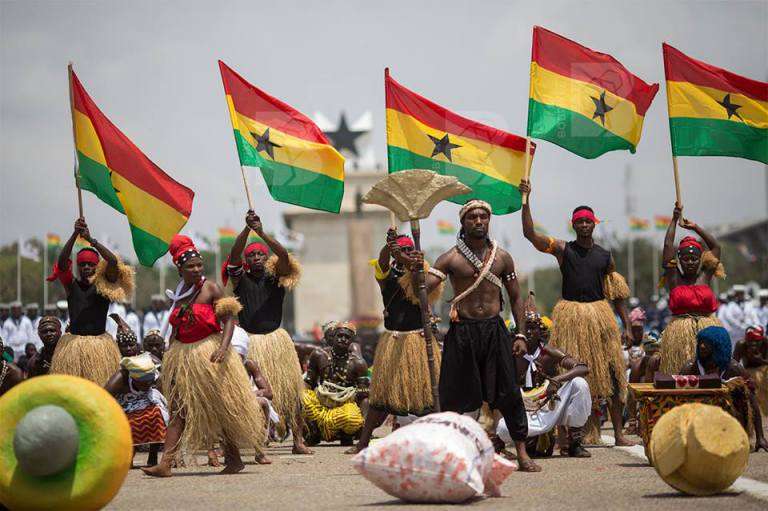Ghana, the first Sub-Saharan African nation to gain independence from colonial rule in 1957, embarked on its journey towards economic liberation with high hopes and aspirations. However, after marking 67 years of independence today, 6th March, 2024, the nation found itself grappling with the complexities of economic dependency.
Despite initial strides towards development and self-sufficiency, Ghana’s path to economic liberation has been riddled with challenges, setbacks, and a persistent struggle against external influences.
At the dawn of independence, Ghana’s founding father, Dr Kwame Nkrumah, envisioned a prosperous and self-reliant nation. He advocated for Pan-Africanism and sought to lead Ghana and the continent towards economic autonomy.
Under Dr Kwame Nkrumah’s leadership, Ghana implemented ambitious development projects, including industrialization initiatives and infrastructure development. However, these efforts were met with mixed success, and Ghana soon faced economic difficulties exacerbated by internal and external factors.
One of the primary obstacles to Ghana’s economic liberation has been its heavy reliance on external aid and loans. In the years following independence and up to now, the nation has borrowed heavily from international financial institutions to fund development projects and sustain its economy.
While these loans provided temporary relief, they also burdened Ghana with significant debt, leading to a cycle of dependence on foreign assistance and structural adjustment programs.
Furthermore, Ghana’s economy has suffered from over-reliance on primary commodities such as cocoa, gold, and timber. Despite being rich in natural resources, the country’s failure to diversify its economy left it vulnerable to fluctuations in global commodity prices.
Additionally, inefficient governance, corruption, and political instability has further hindered Ghana’s economic progress, stifling investment and growth opportunities.
Ghana Finds Itself At A Critical Juncture
As Ghana commemorates 67 years of independence, the nation finds itself at a critical juncture in its quest for economic liberation. Recognizing the need for sustainable development and self-reliance, successive governments have implemented reforms aimed at fostering economic growth and reducing dependency on external aid.
One key strategy has been the promotion of entrepreneurship and private sector development. By creating an enabling environment for businesses to thrive, Ghana aims to stimulate job creation, innovation, and economic diversification.
Initiatives such as the National Entrepreneurship and Innovation Plan (NEIP) and the establishment of special economic zones demonstrate the government’s commitment to supporting local businesses and attracting foreign investment. However, despite these efforts, Ghana is still riddled with massive youth unemployment and slow private sector growth.
Moreover, Ghana has prioritized infrastructure development as a catalyst for economic growth. Investments in transportation, energy, and telecommunications infrastructure are aimed at improving connectivity, reducing production costs, and enhancing the country’s competitiveness on the global stage.
The recent completion of major projects such as the Tema Port Expansion and the construction of the Circle and Pokuase Interchanges signify Ghana’s progress towards building a modern and efficient infrastructure network.
In addition to domestic efforts, Ghana has pursued regional integration and cooperation as a means to enhance its economic prospects. The nation is a member of various regional blocs such as the Economic Community of West African States (ECOWAS) and the African Continental Free Trade Area (AfCFTA), which seeks to promote trade, investment, and economic integration across the continent.
By leveraging its geographic position and participating in regional initiatives, Ghana aims to expand its market access and strengthen economic ties with its neighbors.
Despite these efforts, Ghana’s journey towards economic liberation remains fraught with challenges. Persistent issues such as corruption, inadequate infrastructure, and an underdeveloped education system continue to impede progress and hinder the full realization of the nation’s economic potential.
Additionally, external shocks such as the COVID-19 pandemic have highlighted the vulnerabilities of Ghana’s economy and highlighted the importance of resilience and adaptability in the face of adversity.
In the intervening time, Ghana must remain steadfast in its commitment to economic liberation and sustainable development. By prioritizing investment in human capital, fostering innovation and entrepreneurship, and strengthening governance and institutions, Ghana can overcome its legacy of economic dependency and chart a course towards prosperity and self-reliance.
As the nation reflects on 67 years of independence, it must draw inspiration from its past achievements and redouble its efforts towards realizing the vision of a truly liberated and prosperous Ghana.
READ ALSO: Bulls Regain Dominance at GSE



















